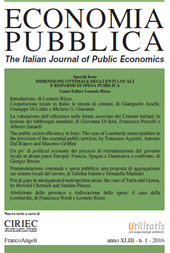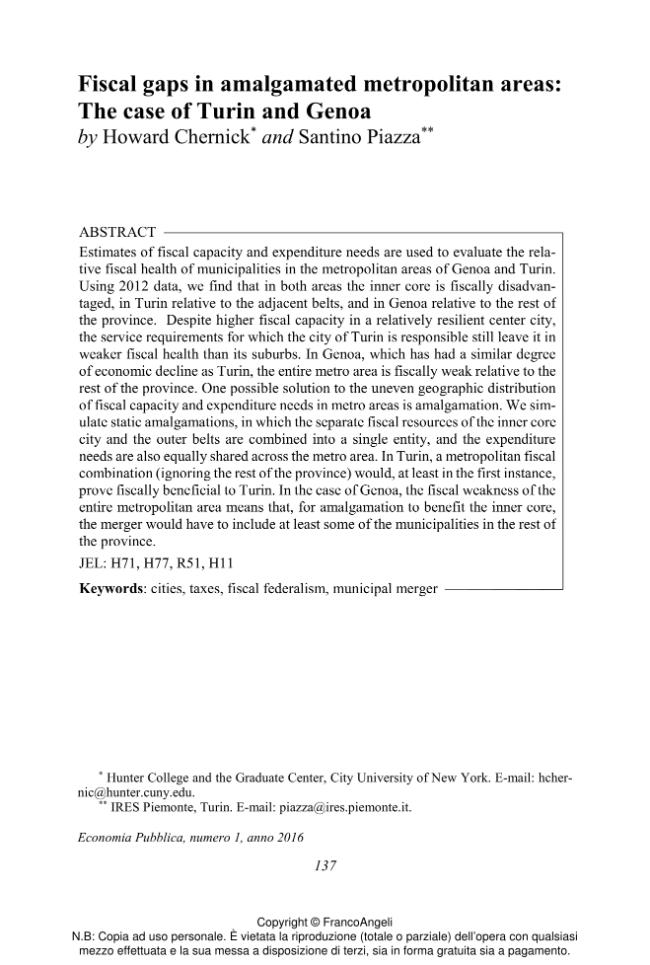Fiscal gaps in amalgamated metropolitan areas : The case of Turin and Genoa
137-171 p.
Estimates of fiscal capacity and expenditure needs are used to evaluate the relative fiscal health of municipalities in the metropolitan areas of Genoa and Turin. Using 2012 data, we find that in both areas the inner core is fiscally disadvantaged, in Turin relative to the adjacent belts, and in Genoa relative to the rest of the province. Despite higher fiscal capacity in a relatively resilient center city, the service requirements for which the city of Turin is responsible still leave it in weaker fiscal health than its suburbs. In Genoa, which has had a similar degree of economic decline as Turin, the entire metro area is fiscally weak relative to the rest of the province. One possible solution to the uneven geographic distribution of fiscal capacity and expenditure needs in metro areas is amalgamation. We simulate static amalgamations, in which the separate fiscal resources of the inner core city and the outer belts are combined into a single entity, and the expenditure needs are also equally shared acros
s the metro area. In Turin, a metropolitan fiscal combination (ignoring the rest of the province) would, at least in the first instance, prove fiscally beneficial to Turin. In the case of Genoa, the fiscal weakness of the entire metropolitan area means that, for amalgamation to benefit the inner core, the merger would have to include at least some of the municipalities in the rest of the province.
Fait partie de
Economia pubblica : XLIII, 1, 2016-
Articles du même numéro (disponibles individuellement)
-
Informations
Code DOI : 10.3280/EP2016-001007
ISSN: 1972-5566
DISCIPLINES
KEYWORDS
- Cities, taxes, fiscal federalism, municipal merger



